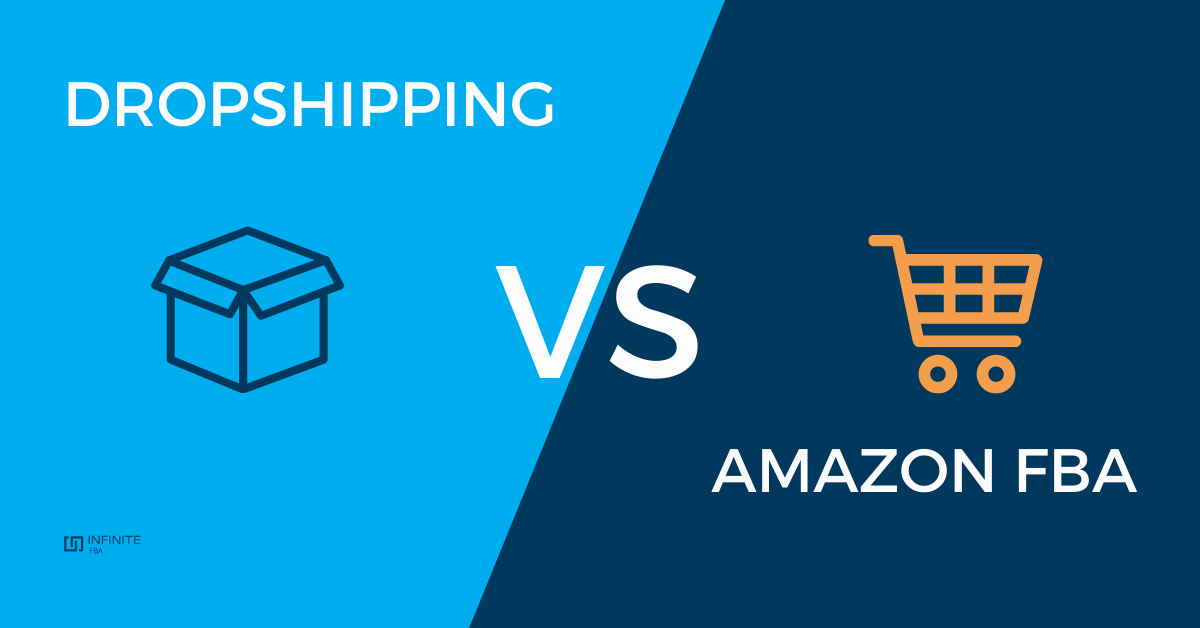It is no surprise that entrepreneurs, especially solopreneurs, want to leverage the still-booming industry of online business concerns such as online stores and eCommerce. The COVID-19 pandemic, while affecting almost other industries, ensured that eCommerce has solid grounds beneath.
Therefore, if you want to make a substantial income from the internet, Amazon FBA and dropshipping are great options. However, some people still do not understand the differences between using the Amazon FBA and dropshipping models for online business. Even worse, some believe that FBA and dropshipping are the same. Well, they are not.
As an entrepreneur, though, you should have a clear idea about the business models: FBA vs Dropshipping. Therefore, it is essential to know the similarities and differences between the two online commerce methods. We wanted to help you do that through this article. Here, we have covered the similarities and differences between dropshipping vs FBA.
But, more importantly, we have made a factor-by-factor comparison between the two methods. For instance, we will discuss initial investment, risk, profit margin, customer support, fees, competition, shipping, etc., and more details about the business models.
Shall we get started?
Introduction to Dropshipping vs Amazon FBA
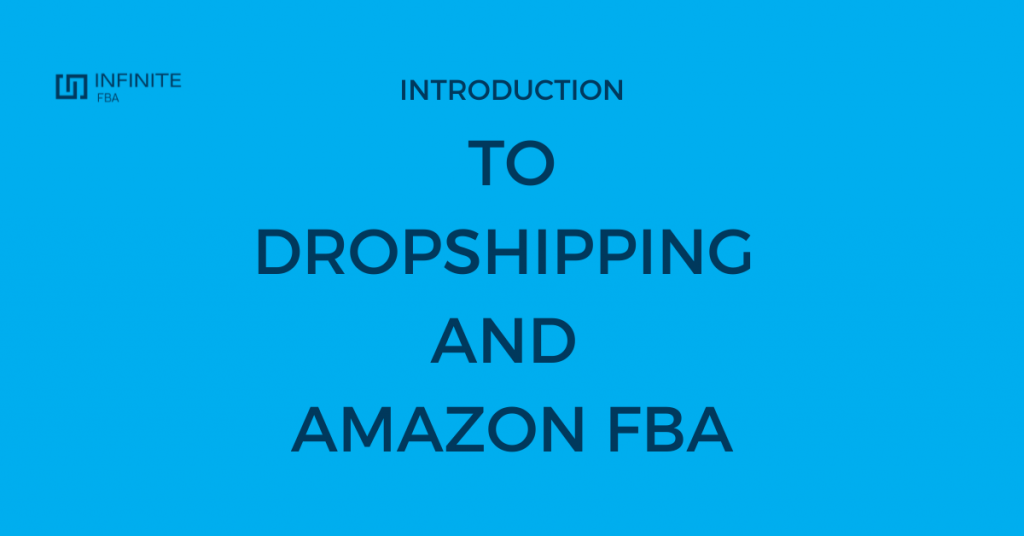
We shall get started with an introduction to both Amazon FBA and dropshipping. We will keep it brief, only covering the most important things about both ways to get into eCommerce. Indeed, we will list out the pros and cons of each method.
What Is Amazon FBA Business Model?
Fulfillment by Amazon, better known as Amazon FBA, is a fulfillment method available on Amazon stores. It is a set of rules and promises that Amazon keeps for delivering products to customers at the earliest. For an entrepreneur, however, Amazon FBA is a business model and opportunity to leverage the global user-base that Amazon has the benefits of.
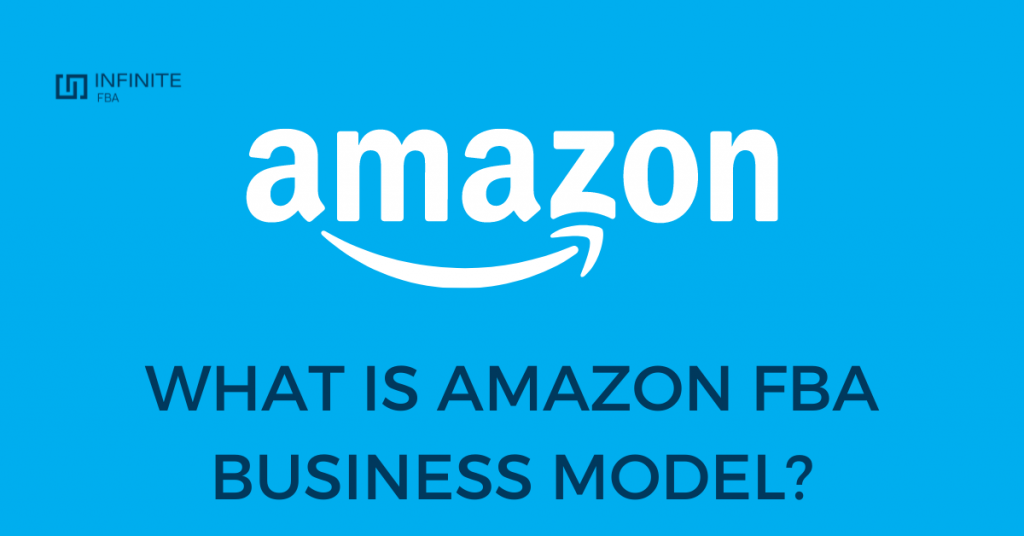
According to FBA, Amazon and its well-trained factories and employees do packaging, shipping, and fulfillment orders. Sellers ensure that they make the inventory available to Amazon as per demand. Therefore, instead of worrying about every single order, sellers can focus on the quality of the products delivered to Amazon. Amazon will then make sure that the products are delivered to customers on time.
Of course, these pointers are easier said than done. Any FBA seller would tell you that FBA rules and regulations are stringent. You cannot afford mistakes in the game, lest you are ready to get the seller account suspended, or worse, blocked. Therefore, only sellers who religiously follow Amazon’s FBA regulations can succeed in this system. We will talk more about this aspect later.
Looking at the digital marketing and eCommerce space, you can see many success stories involving FBA. Of course, there are also nightmare stories, but they probably happen when carefree about the FBA fulfillment process. In short, if you want to get started with one of the largest marketplaces in the world, Amazon FBA is a suitable option.
Pros of Amazon FBA
- Amazon FBA lets you use the massive user-base of Amazon marketplace sections.
- Products on Amazon FBA automatically get Prime eligibility. It means better sales.
- Your products will have increased exposure due to Amazon eligibility
- You do not have to worry about customer service, returns, etc.
- Your products will allow products to programs like Subscribe & Save, FBA Export.
- Amazon does not charge a lot for low-weight and low-volume products on the Amazon marketplace.
Cons of Amazon FBA
- Compared to other methods, Amazon FBA requires a heavy investment beforehand.
- You have to follow Amazon FBA regulations on a religious basis
- You have to stay on top of the barcoding and product scanning game to avoid issues
- Amazon FBA may require massive infrastructure for some products
Despite these minor disadvantages, there has never been a decrease in the number of people who pick FBA as their project.
What Is Dropshipping eCommerce Business?
Dropshipping is an eCommerce scheme where the sellers do not have to worry about packaging, shipping, or fulfillment. Instead, the request is forwarded to the vendor or an in-bulk manufacturer when a user orders. This vendor will manufacture the product and deliver it to the customer’s address. The seller does not even see the actual product before it is delivered.
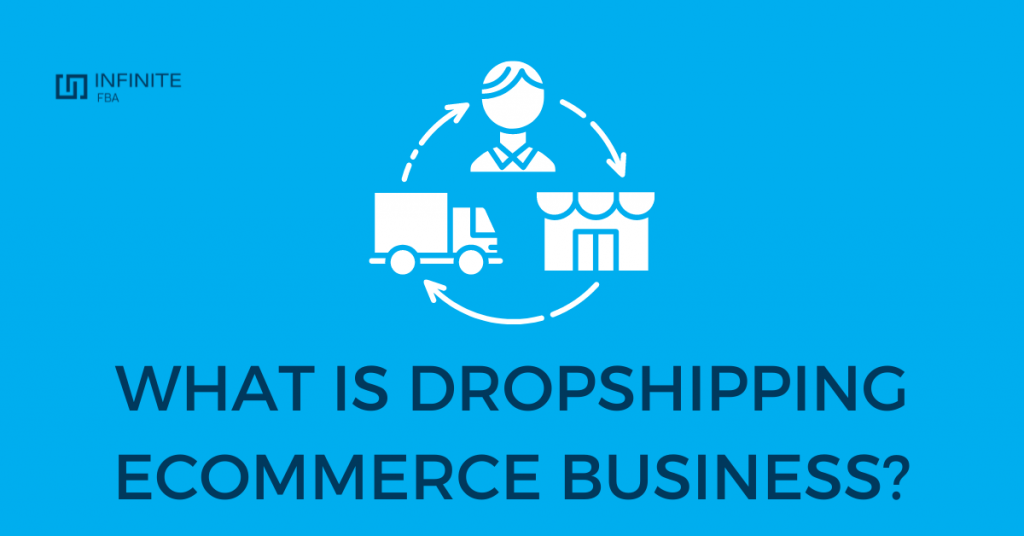
Dropshipping business is used in different categories, including apparel, stationery, electronics, craft, art, etc. If you are into dropshipping, your primary concern is to market the product and attract potential customers. Once they have placed the order and made the payment, you can forward the request to the drop shipping vendor and relax.
Compared to FBA or other eCommerce platforms, dropshipping is easy. You do not have to worry about serious certifications or labels. On the bright side, you can customize the product and add logos and other branding elements if you want. Therefore, the customer gets the impression that you have made and shipped the product.
Depending on the area you live in, the dropshipping model options may vary. T-shirts are one of the widely seen types of products in dropshipping. They are chosen because of the saturated market and the potential market. With sensible ideas and strategy, everyone can make t-shirts to sell. Similarly, each category will have its fair share of advantages and limitations.
You can also set up a Shopify store that will help you get things done quickly. There are multiple ways to connect a Shopify store to the supply chain and the drop-shipping service. You can thus get the benefits of wholesale price while delivering maximum customer success and positive reviews. In short, dropshipping could help you sell online without depending on Amazon warehouse infrastructure and heavy initial investment.
Pros of Dropshipping
- No need to worry about packaging and shipping for an e-Commerce business
- It is not necessary to comply with strict regulations
- You can benefit from retail arbitrage and other discounts
- Dropshipping allows you to have maximum control
- You have more control over inventory management than the other business model.
- You can customize the product and add private labels
Cons of Dropshipping
- You have to take care of customer support
- You cannot make promises regarding the delivery speed
- You will have to endure the severe competition in all fields
- Finding a competitive and reliable vendor is difficult
We believe you have understood the major disadvantages and advantages of Amazon FBA and drop shipping. We will now move forward and look at the similarities between Amazon FBA and drop shipping.
Dropshipping vs FBA: Similarities
There are a few factors common to Amazon FBA and dropshipping.
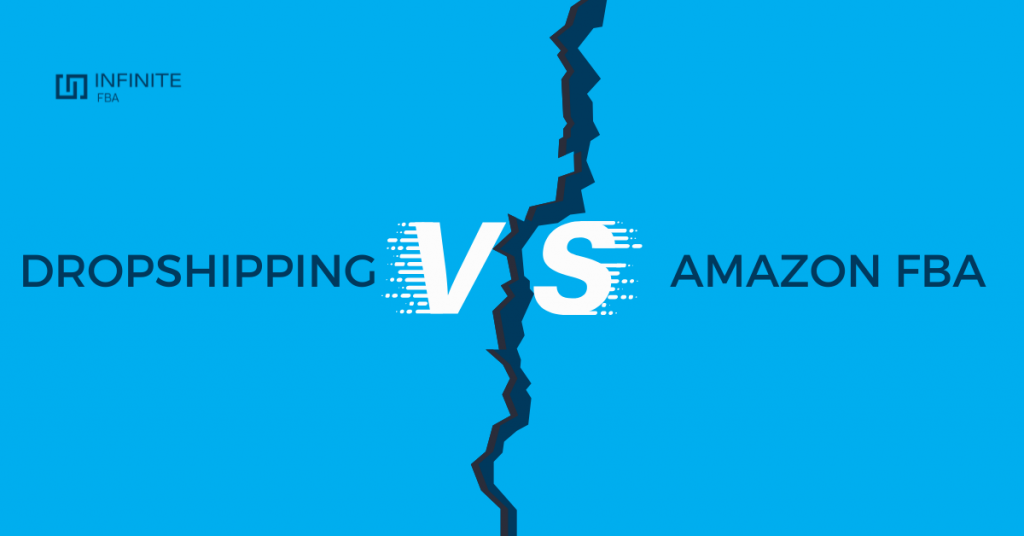
These similarities are why entrepreneurs and solopreneurs choose Amazon FBA and dropshipping as the perfect entry gate to eCommerce. We are sure you will appreciate the following benefits that could be found on both FBA and dropshipping.
- Minimal Effort
Both the FBA model and the dropshipping model for your eCommerce business require minimal effort from the seller. Sure, you may have to take many approaches towards inventory management and packaging.
However, compared to the process of handling everything about eCommerce by yourself, FBA and dropshipping are on the easy side of things. Therefore, a seller can start dropshipping and FBA with minimal capital and knowledge about both systems.
- Little Prerequisites
You do not have to be an online store expert to get started with Amazon FBA or dropshipping. First, the steps you have to follow are straightforward. Second, you can find a massive collection of tutorials and supportive content on the web.
So, even if you come across problems while setting up your Amazon FBA or dropshipping business, you do not have to worry much.
- Incredible Profit
In the case of Amazon FBA, you can choose products that provide you maximum profit. On the other hand, dropshipping gives you the advantage of customization, branding, and retail arbitrage.
Due to these reasons alone, both FBA and dropshipping techniques can provide you incredible profits. It is why both these options are popular among users.
There are also a few other similarities. For instance, you do not have to worry about fulfillment in both these cases. Either the dropshipping company or Amazon will deliver the order to the customer. In most cases, you do not have to worry about returns/replacements, either.
Because drop shipping companies use a network for deliveries, the same infrastructure can take care of after-delivery processes.
It is the point where the similarities between Amazon FBA and dropshipping end. From now on, you can see the noticeable differences in different aspects of the system.
Comparison between Dropshipping vs Amazon FBA
Below, we have compared Amazon FBA and dropshipping based on essential factors in online commerce, fulfillment, and the functioning of your eCommerce business.
Initial Investment
- Amazon FBA
With FBA, you have to make a considerable initial investment. There are some fees that you would be able to skip, but most of them are mandatory. For instance, you should have a professional seller account, to begin with. You have to pay a monthly subscription fee for this account along with per-order fees.
After you have set up the account and made the listing, you will have to arrange the inventory and send it to the nearby Amazon Fulfillment Center. Based on where you are, you may have to spend exorbitant fees to move the stock around.
As you cannot start selling on Amazon without sufficient supply, it must be considered an initial investment. Unfortunately, you cannot make compromises in this area because, as we said earlier, Amazon is quite strict about the rules and regulations.
- Dropshipping
With dropshipping, initial investments are comparatively lower. The main reason is how the dropshipping system works in the first place. You have to order the product only after a buyer has placed the order. So, it is not necessary to have an inventory ready before processing an order.
However, it does not mean you can choose to spend nothing at all. We should keep in mind that you do not get a pre-designed consumer base with dropshipping. That is, you have to attract more users to the product via marketing techniques. These techniques and campaigns can be expensive at times.
In comparison, though, dropshipping does not want you to spend too much before you begin. This point will also impact the risk posed to the seller when they are into dropshipping and FBA. And it will be an area where dropshipping has the upper hand.
Risk
- Amazon
With Amazon FBA, your business is subject to a moderate to a high amount of risk. Here is why. As we said, you have to get a membership, set up the listing, send the inventory, and connect the orders before seeing progress (if any.)
So, if one of these pointers does not work out, your business could be at stake. In addition, even the slightest problems with the inventory can lead to Amazon sending it back or disposing of it. So, as you can guess, it can lead to additional risks. Considering all these, we would say that Amazon FBA is relatively riskier.
- Dropshipping
Lack of risk is one reason why many entrepreneurs choose dropshipping over other shipping methods. As we said in the previous section, the seller does not have to make an order unless the buyer has an order. It gives the seller a few advantages.
First, there is no need to set up an inventory that may go useless at a later point. Second, the seller will have the assurance of financial support when they forward the order to the dropshipping company. This cycle of automation and trust can continue while generating a massive profit for both ends.
Profit Margin
- Amazon FBA
You cannot predict the profit margin on Amazon FBA, to be exact. It happens because the online store might change the selling price of your product for better visibility. You may also have to sell the product for a lower cost than other sellers to get the upper hand in the first place. In light of all these, the profit margins in an FBA business can be meager.
However, these numbers may recover in the long run, and you can receive a steady income from the global marketplace.
- Dropshipping
Dropshipping is about retail arbitrage, and you get to decide the profit margins to an extent. First of all, you can choose the price at which the product sells. As long as people visit your online store, there is nothing to worry about sales. When you order more units from the dropshipping agency, it will also help you with wholesale discounts.
Therefore, in the long run, you can expect the dropshipping business to stay lucrative. So, comparatively speaking, you can enjoy better profit margins in the dropshipping business model.
Customer Support
- Amazon FBA
Customer support is an area where FBA has the upper hand for sure. As we said earlier, Amazon is built on a network that values customer support, on-time deliveries, and transparency. Therefore, when you deliver a product through Amazon FBA, you do not have to worry about logistical or technical issues.
Even if there are problematic scenarios involving refunds and replacements, Amazon will take care of this. In addition, you will not have to pay for these services since they are part of the FBA package.
- Dropshipping
The dropshipping store service may offer customer service, but you cannot expect any standards here. It would also mean that you have to set up customer care for your buyers if they cannot get in touch with the drop-shipping agency.
However, given that you rely on a trustworthy and effective manufacturer, you can stay away from these worries in dropshipping. Even if we talk about customer care for sellers, you will have to keep your expectations low.
Shipping
- Amazon FBA
With Amazon FBA, you do not have to worry about shipping at all. As long as your inventory is available, all aspects of shipping will be done by Amazon. In addition, because Amazon FBA provides Prime eligibility, your products will be delivered to the customer at the earliest.
Similarly, given that your product packaging is in sync with Amazon’s standards, you can ship low-weight products at reasonable rates.
- Dropshipping
Dropshipping also does not want you to worry about shipping. Once you have forwarded the order to the dropshipping company, it will do everything else. Even though the delivery speed may vary, the product will reach the customer with customizations.
Considering that the end-product can be tailored according to your needs, the delay is reasonable for the most part.
Fees
- Amazon FBA
As we mentioned once, FBA is known for its exorbitant fees. In addition to the membership fee, you will have to pay other fees for storage and transport. If your product gets sales throughout the year, there is nothing to worry about.
On the other hand, if the inventory takes more space from Amazon’s warehouse facility, you will be asked to pay nevertheless. You can also come across additional fees and limitations with FBA.
- Dropshipping
In a dropshipping store, you do not have to worry about fees much. Of course, you will have to pay the company to deal with the orders, but that’s about it. Because the dropshipping company takes care of inventory and supply management, dropshipping eCommerce store gives you the ability to focus on the more critical aspects.
In the end, you can upgrade the options when you have a better customer base.
Competition
- Amazon FBA
On Amazon, the competition is higher than you can imagine. Every day, the number of sellers is increasing, and they are occupying categories that were considered low competition until now.
- Dropshipping
Even though the drop shipping competition is increasing, the aspect of customization is an edge. It means you can come up with customized products that people will love to buy.
Conclusion
As you can see, FBA and dropshipping are not the same. However, the differences are solid and can have an impact on how your eCommerce business moves forward. Therefore, you have to choose between these two options based on the money, effort and research you can invest in. We hope this helps in choosing the right business model for your requirements.
Ref

